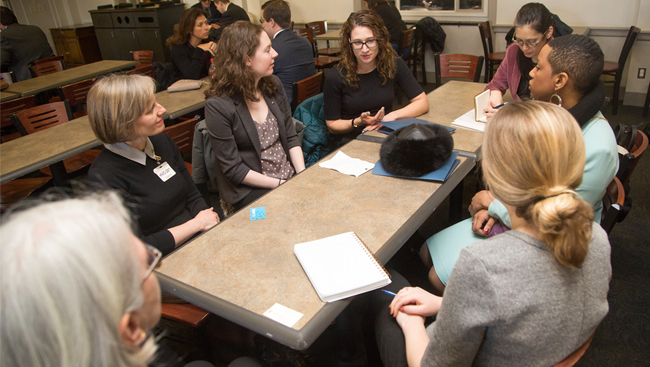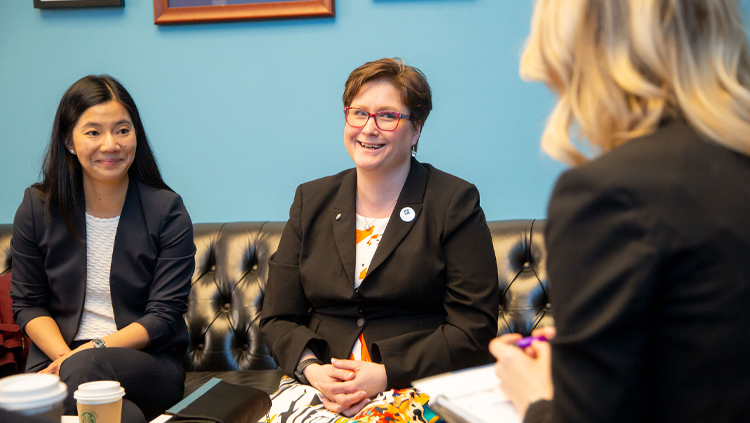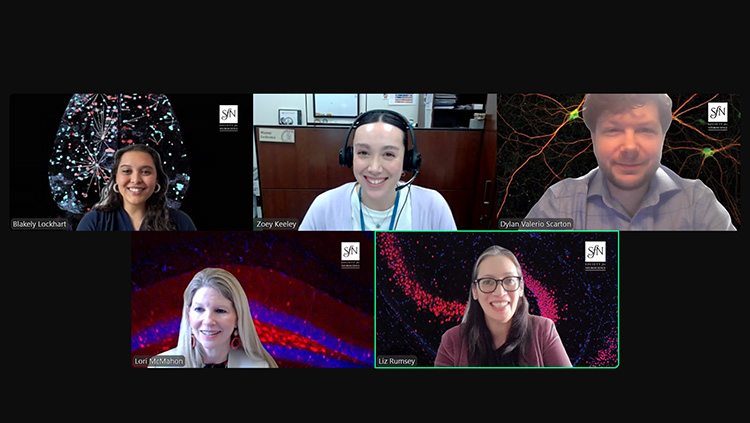
Each stage of a scientist's career is filled with unique challenges that seem like roadblocks to becoming an advocate. Graduate school is no exception, but early career scientists should be advocating for science, as what this year’s budget provides can alter our career trajectories.
As a graduate student, I first thought there wasn’t much I could do, and that advocacy could only be effective if it was intense and all consuming. Even if I figured out what to do, it seemed like it would be too much. I soon found this assumption to be false.
Here are some of my initial concerns and what convinced me we can all do science advocacy.
Why would anyone listen to me? I’m not an expert. I don’t have the same track record as an established professor.
To the policymakers, you are the expert. You’re in the lab every day and know how the scientific process works. You know exactly how your discoveries can impact people. Let that impact speak for itself.
How do I convey the importance of basic research? It seems overwhelming to speak for all of science.
Develop an elevator pitch about your work and stick to it.
Think about the ultimate long-term goal. How will your science help people? Include concrete take-away points, such as the importance of robust and sustained funding, and the positive economic implications from investments in science.
Where do I find time while I take classes, teach, mentor, study, and work on my thesis?
Act local. Attending a local event often takes minimal time outside of the event.
Here are some simple ways to engage and the impact each can make:
- Serve as a science fair judge at a nearby middle or high school. It may inspire the next generation of scientists and prompt parents to ask you how they can support their children in getting where you are. This is where you can encourage them to support science in the next election.
- Host a booth at a festival or community event. We had one at a local music festival. I came with colorful beakers to get people’s attention, which sparked great conversations about science. Many were pleasantly surprised to learn about the research going on in disease areas important to them. Following my engagement there, I was invited to speak at local town hall meetings where I could surface my key points to elected officials.
- Share advocacy related emails and action alerts with your department. It’s as easy as signing up for SfN’s advocacy action alerts and pressing the forward button. Once after sharing an alert, we saw 150 messages sent to our local representative in just 48 hours.
- Connect with your local newspaper. Local reporters want to hear from you, so reach out directly. I did, via Twitter, about the graduate student tax. It was clear from people’s comments they had a lot of misconceptions about the scientific process. I ended up working on an article about the tax and answered people’s questions online, which helped dismantle misconceptions and defeat the tax.
It’s amazing what we can accomplish when we mobilize and unite our voices.
As scientists, we know the importance of scientific research and the positive outcomes our research can have, but we often don’t communicate this knowledge to those who control the budgets (Congress) or pay the bills (taxpayers).
It may not seem like our place to venture outside of the lab, but at the end of the day, the best science advocates are scientists themselves.
Advocacy is not one-size-fits-all. Choose one activity that’s interesting to you, and just go for it. Imagine the difference we could make.








